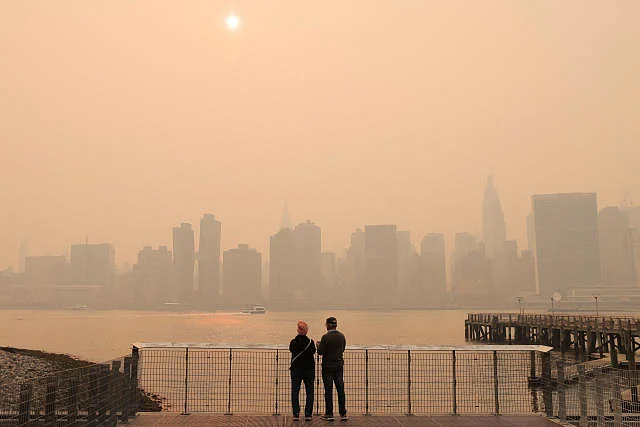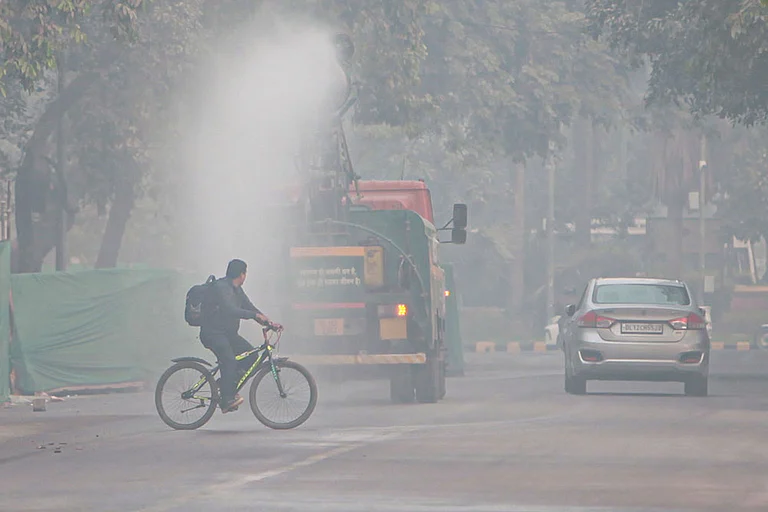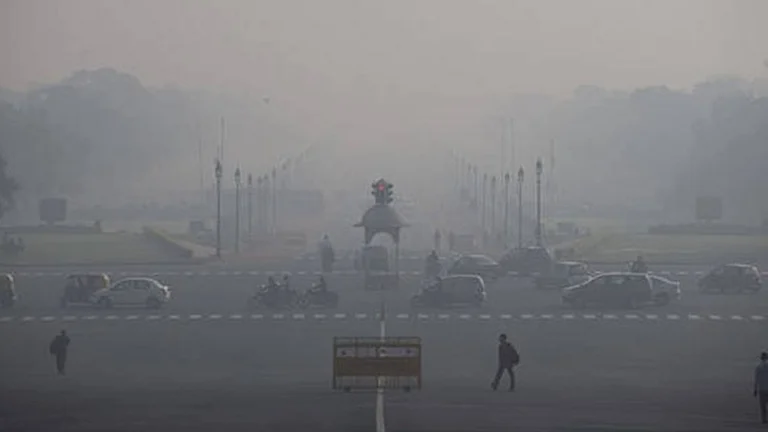Last summer, much of the U.S. Northeast found itself blanketed by dense smoke emanating from Canadian wildfires, leading to New York City experiencing its worst air quality since the 1960s. Such episodes, once rare, are now increasingly common, a consequence of the impact of climate change, according to new research.
The findings, released by First Street Foundation, a group that analyzes climate risks, suggest that approximately 83 million Americans, or one in four, are exposed each year to air quality categorized as "unhealthy" by the Air Quality Index (AQI).
This number is projected to climb to 125 million within decades. The unhealthy AQI level, coded in red, indicates that outdoor activities may result in lung impairment for some individuals, leading to respiratory issues such as chest pain and coughs.
The deteriorating air quality stands in stark contrast to decades of progress spurred by regulations like the 1970 Clean Air Act, which imposed stricter rules on pollutants from factories and vehicles. However, the recent surge in poor air quality is proving challenging to combat as it is intrinsically linked to global warming, with rising temperatures and drought fueling more smoke-emitting wildfires, as stated by First Street.
Jeremy Porter, head of climate implications research at First Street, warned of the dire consequences, noting that the escalation in poor air quality could undo the health benefits gained from past pollution regulations and negatively impact the U.S. economy. "We're essentially adding back additional premature deaths, adding back additional heart attacks," Porter cautioned, highlighting the loss of productivity due to outdoor job disruptions.
Evidence suggests that people are already relocating from regions with deteriorating air quality, reshaping the nation's demographic landscape. Porter highlighted this trend, noting, "The downstream effect of people moving away is that property values start to suffer because the area becomes less desirable."
While the West Coast, particularly California, Oregon, and Washington state, has experienced the greatest decline in air quality, the impact is increasingly felt east of the Mississippi River. Porter recounted a notable incident in 2022 when fires in the Florida panhandle prompted neighborhood evacuations, underscoring the widening reach of air quality deterioration.
First Street's projections indicate a further increase in unhealthy AQI days in the coming decades, with Western states anticipated to bear the brunt. However, pockets of the Southwest, notably the Florida-Georgia border, are already witnessing a rise in such days, highlighting the broader geographic scope of the issue.
The exacerbation of poor air quality is attributed to rising levels of particulate matter and ozone, driven by environmental changes such as extreme heat, drought, and wildfires. PM2.5 particulates, in particular, pose significant health risks, capable of penetrating deep into the lungs and causing various ailments.
Addressing the challenge posed by climate-induced air pollution requires proactive measures. First Street's RiskFactor.com provides tools for individuals to assess their risks and mitigate them. Porter emphasized the importance of safeguarding indoor air quality, suggesting simple steps like sealing windows and regularly changing HVAC filters.


























